
21 Books from 2021
“Reading is essential for those who seek to rise above the ordinary.” So said Jim Rohn, and it’s true: reading develops your mind, provides you with new ideas, and prepares you for success. This year’s list of my top 21 books should stimulate a wealth of ideas for your new year’s reading list. If you need more inspiration, then check out some of the previous lists, such as 20 Books from 2020, 19 Books from 2019, or 18 Books from 2018 – or, browse through the online Athenaeum for a wealth of other ideas.
As always, a recommendation of any book on this website is not a complete endorsement. I try to alert readers to objectionable content, but always recommend discernment. Click the picture of the book to visit its page on Amazon. I use the following grading system:
5 Stars: A book that is profound, paradigm-shaping, or exceptional in some way. Very few books ever receive five stars from me.
4.5 Stars: An excellent book that I would like to give five stars to – but I can’t quite describe it as ‘brilliant,’ ‘profound,’ or ‘life-changing.’ Still, I would highly recommend it to anyone!
4 Stars: A great book, worth reading, and significantly better than the average book.
3 Stars: An average book. If you are interested in the subject, you will find it useful.
2 Stars: Below average. It may have some good points, but probably not worth your time. Some people may find these books worth skimming.
1 Star: I find no reason to read this book, or even skim it. In fact, it isn’t even worth finishing.
(1) Rebel Yell: The Violence, Passion, and Redemption of Stonewall Jackson (5 stars) S. C. Gwynne
The biography of a civil war general may not seem like the most encouraging book to read, but this biography was both edifying and engaging. Gwynne’s carefully-studied description of Jackson describes a man who rose from relatively obscurity to become one of the most celebrated figures of the 19th century. As one of the most respected generals of the American Civil War, he was admired by Southerners and Northerners alike for his brilliant strategies, peculiar personality, and robust faith. This account admirably explains the man and his motivations while allowing the reader to grapple with Stonewall’s genuine faith and apparent contradictions. While part of the book describes his tactical brilliance, readers will meet the man himself through extensive accounts of his earlier life.
(2) Being Mortal: Medicine and What Matters in the End (5 stars) Atul Gawande
Old age. It’s not on anyone’s wish list, but most people will face it. Today, as the global population continues to age, seniority is a reality for more and more people. Gawande’s incredible, though-provoking book isn’t always delightful, but it’s surely worth your time. As an ER nurse myself, I believe that this book is essential reading for anyone who plans to get old or has any family members who are (or will be) getting into their senior years. I’ve recommended it to others in the healthcare profession, and they’ve all agreed that it’s worthwhile. Although this book isn’t written from a Christian perspective, it also brings up plenty of thought-provoking ideas that Christians will benefit from.
(3) Live Not By Lies: A Manual for Christian Dissidents (4.5 stars) Rod Dreher
When I undertook to study ‘government gone wrong’ last year, I didn’t have time to write a book on my findings. But if I did, I hope that my book would have looked something like Life Not By Lies. It summarizes clearly what Christians today need to be thinking about in our increasingly hostile society. The book points out that while Christians of the 20th century lived under harsh regimes characterized by hard totalitarianism, modern America is undoubtedly entering a period characterized by soft totalitarianism. This period will be just as demanding in it’s requirement for unquestioning societal and intellectual conformity, but it will use ‘softer’ punishments to destroy the lives of those who resist. Although Dreher isn’t a Protestant, his many interviews with persecuted believers in the former Soviet bloc lend to a book that is valuable for anyone who is interested in thinking outside of what is ‘politically correct.’
(4) Shadow of the Almighty: The Life and Testament of Jim Elliot (4.5 stars) Elizabeth Elliot
Elizabeth Elliot’s skillful edition of her martyred husband’s journal is a deeply moving, spiritually strengthening book to read. It paints the picture of a man who was on fire for Christ, willing to sacrifice everything for his Savior, and who joyfully – and knowingly – took great risks to advance the Kingdom. Jim Elliot was just 28 when he was martyred in the Amazonian rainforest while taking the gospel to unreached peoples. He had been married to Elizabeth for only 2 years and three months. I greatly profited from the example of this man, and I’m sure that you will, too.
(5) Suffering is Never for Nothing (4.5 stars) Elizabeth Elliot
The story of Elizabeth Elliot’s suffering doesn’t end with the death of her spouse, Jim, who was martyred when she was only 29. She later went, along with her toddler daughter, to live among the same tribe that had martyred her late husband. Her second husband died only four years after their wedding. Hence, Elliot is able to speak from experience about the theological significance of pain and suffering. This book is short and deeply encouraging, reminding us that suffering is, as the title says, never for nothing.
(6) Ancient Israel: Its Life and Institutions (4.5 stars) Roland De Vaux
If Greece has given us philosophy and Rome has given us law, it is ancient Israel that has most impacted the spiritual life of the western world. This erudite volume is massive in its scope: it covers all aspects of the ancient Hebrew society, including the military, government, culture, and religion. Do you want to know how the ancient Israelites divided the year? You can find it here. Do you want to know what it meant to be a farmer, or what slavery was like? All these questions are answered in this volume. Although a bit dated, it’s still an incredible resource. Conservative Christians should beware that De Vaux’s book does follow some of the more progressive approaches to the Old Testament, including liberal dating of different sections of text and recommended ‘improvements’ of the text. While this limits some of the conclusions and requires discernment, it is still a wealth of information.
(7) Newton on the Christian Life: To Live is Christ (4 stars) Tony Reinke
John Newton – the former slave trader and later author of ‘Amazing Grace’ – was an author and prolific letter writer. This book brings together and summarizes many of his views on the Christian life, and I benefitted deeply from his Christ-centered approach to life. Reinke both quotes from Newton and summarizes Newton’s theology, in chapters as varied and practical as ‘The Daily Discipline of Joy in Jesus,’ ‘Seven Christian Blemishes’ and ‘Victory over Mr. Self.’ This is the same Tony Reinke who wrote ’12 Ways Your Phone is Changing You’ and ‘Lit: A Christian Guide to Reading Books’.
(8) How the Mighty Fall: And Why Some Companies Never Give In (4 stars) Jim Collins
I’ve been an enthusiastic reader of ‘Good to Great’ and ‘Built to Last’ – business books that describe healthy organizations. In fact, these books are applicable to all ‘organizations’ – groups of people who work together to accomplish a goal. This book is shorter than the others, and it shows how once great organizations can decline. It’s applicable not only to businesses, but also to families, churches, and even one’s personal life.
(9) The Gulag Archipelago: An Experiment in Literary Investigation (Vol 1) (4 stars) Aleksandr Solzhenitsyn
The USSR was responsible for the deaths of tens of millions – perhaps as many as 60 million. Many, however, greeted socialism with joy, imagining that it would bring a more fair and just world. This classic book recounts the terrors of living in Soviet Russia, from the firsthand experience of the author and what he heard from many personal sources. It’s a tribute to those who died, and a reminder of how easy it is to fall into collective groupthink. Although terrifying, it’s a valuable book and well worth your time. Not for the faint of heart. Reader discretion advised due to thematic content.
(10) How to Have Impossible Conversations: A Very Practical Guide (4 stars) Boghossian & Lindsay
Plenty of people are talking nowadays, but there seems to be less communication than ever. How do you have rational discourse with an ideologue, or someone from the opposite side of the spectrum? With a wealth of tips and strategies, this book explains how to have those conversations that we would normally describe as ‘impossible.’
(11) Return of the Strong Gods: Nationalism, Populism, and the Future of the West (4 stars) R. R. Reno
Whatever you think of it, nationalism and populism are making a comeback. This book shows how liberalism attempted to remove the traditional structures that bound society together – and as society unravels, more people are returning to the idea that we need those social cohesions. This is an insightful book that points out undeniable trends, for better or worse.
(12) Never Split the Difference: Negotiating as if Your Life Depended on It (4 stars) Chris Voss
Written by a top government negotiator, Never Split the Difference explains how to negotiate with anyone – even the really bad buys – and come out on top. Although this book teaches a more hardball approach than Getting to Yes, it’s still worthwhile to read, and is probably more useful in tense and difficult negotiating situations. Mild language.
(13) The Guns at Last Light: The War in Western Europe, 1944-1945 (4 stars) Rick Atkinson
This is the third volume in the Liberation Trilogy, describing the final stage of the war against Nazi Germany. It’s a masterful piece of history (like all of Rick Atkinson’s books), showing the incredible complexity, immense scale, and stark brutality of war. Atkinson’s books do a good job of balancing the big picture story with the personal accounts and narratives, bringing the history back to life. Reader discretion advised due to language and thematic content.
(14) The British Are Coming: The War for America, Lexington to Princeton, 1775-1777 (4 stars) Rick Atkinson
After completing the Liberation Trilogy on World War Two, Atkinson has now started the Revolution Trilogy, covering America’s War for Independence. The war that this book portrays is dramatically different from WWII, but the style of writing (vivid, broad, and yet personal) remains true to the author. Once again, everything that Atkinson writes is worth reading. It’s a powerful reminder of what our forefathers suffered so that we could be free. Reader discretion advised due to language and thematic content.
(15) Them: Why We Hate Each Other – and How to Heal (4 stars) Ben Sasse
America has a much deeper problem than ‘the idiots on the other side.’ We’re more divided than we’ve ever been since the Civil War, and we are convinced of the evil of the ‘other side.’ This deep-seated division makes it impossible for us to work together on what matters, even though (surprising to some) we actually agree on many of the things that matter. Ben Sasse, Republican senator from Nebraska, brings his unique perspective to this problem, and I appreciate his analysis of the underlying problems. He is also the author of The Vanishing American Adult, which I’ve previously recommended.
(16) The Total Money Makeover: A Proven Plan for Financial Fitness (4 stars) Dave Ramsey
This is a fairly simple read, and well worth the time for everyone. I didn’t read this book until now because I thought ‘I’m doing fine with my finances!’ But then a friend gave it to me, so I decided to read it – and I was reminded that this is good, basic advice for everyone. If you’ve not read it, do so soon. It’s a simple path to healthy finances.
(17) The Coffeehouse Investor: How to Build Wealth, Ignore Wall Street, and Get On with Your Life (4 stars) Bill Schultheis
Finally – a book that explains investing in a way that the average person can understand! The book provides a simple investing strategy, the same strategy recommended by much more ‘technical’ books,’ in a way that isn’t complicated. While non-investors might come across a few things that are confusing, it’s overall pretty simple (better than any other book I know), even if the author overdoes the chatty style and ‘coffeehouse’ theme.
(18) The Stranger (4 stars) Albert Camus
Albert Camus was an absurdist philosopher (nearly the same as an atheist existentialist); The Stranger is a novel that fleshes out his philosophy. It’s a jarring, dulling, depressing read – and yet remarkably thought-provoking. I’ve written about it at length here.
(19) Eyes in the Sky: The Secret Rise of Gorgon Stare and How It Will Watch Us All (3.5 stars) Arthur Michel
What if the government had the means to watch everything that you do, from cameras in the sky? They already do, and this is the terrifying story of that technology. Designed as a means to counter insurgents in Iraq, this technology is now being brought to America for other reasons. This book tells what we know about this secret technology, how it is being teamed up with AI, and how to keep a balanced view of this new superpower.
(20) Made to Stick: Why Some Ideas Survive and Other Die (3.5 stars) Chip & Dan Heath
We’ve all been taught things that we never learned. That’s because the ideas weren’t sticky – they weren’t presented in a way that made them stand out and remain memorable in our minds. The ability to present ‘sticky’ ideas is what separates good teachers from the rest. If you are involved in any type of teaching, marketing, or writing, then this is a book that is well worth your time. It explains what makes ideas ‘sticky’ – and how to use that knowledge in your craft.
(21) Sophie’s World: A Novel about the History of Philosophy (3.5 stars) Jostein Gaarder
Someone told me about this book, some time ago, as a ‘philosophical novel.’ Since I was interested in philosophy, I decided that it sounded interesting, so I gave it a read. The first part of the book sounded like little more than textbook chapters stitched together with a few seams of narrative. But when I got to the middle, it suddenly got more interesting. From then on, the story took center stage, while still including philosophy – and it ended in a way that was both interesting and educational.


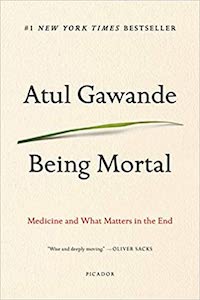
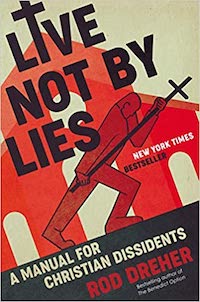
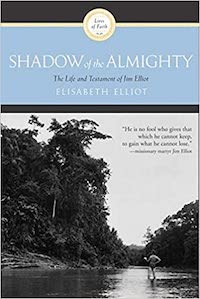
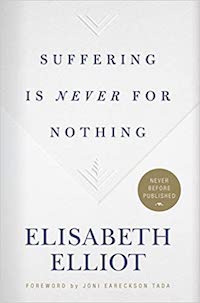
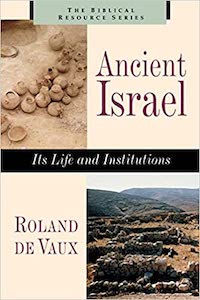
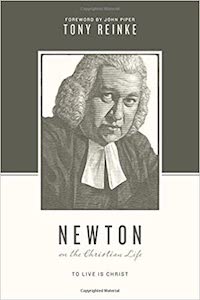
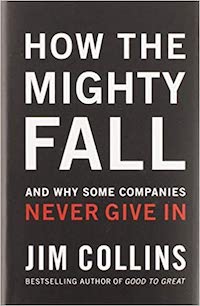
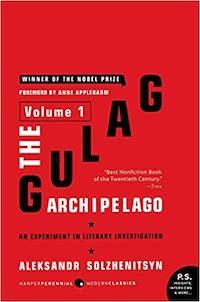
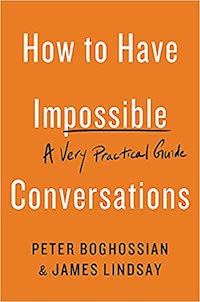
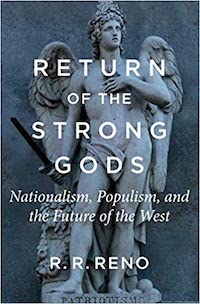
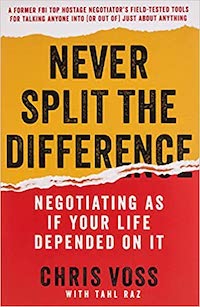
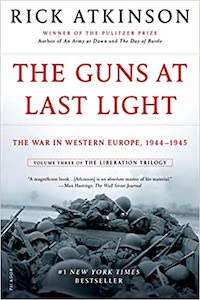
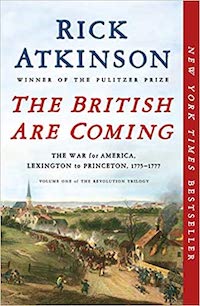
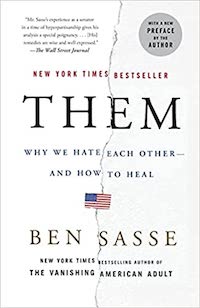
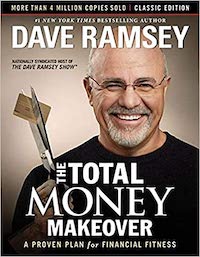
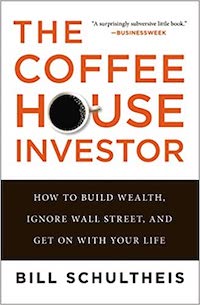
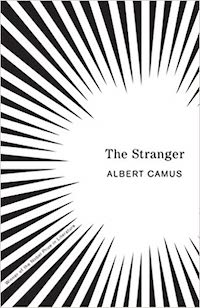
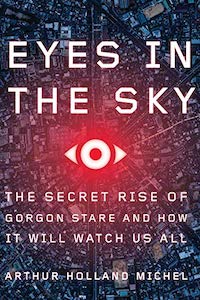
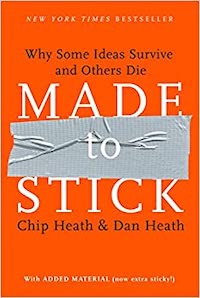




Daniel,
An excellent post! Thank you! I appreciate your commitment to lifelong learning. Jim Rohn’s quote you included at the beginning is profound: “Reading is essential for those who seek to rise above the ordinary.”
I read “Live Not By Lies” this summer and would highly recommend it for any Americans who are interested in preserving freedom amid growing totalitarianism.